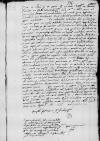cf. Tiedemann GIESE to Ioannes DANTISCUS s.l., 1539-04-18, CIDTC IDL 4769⌊Litteraecf. Tiedemann GIESE to Ioannes DANTISCUS s.l., 1539-04-18, CIDTC IDL 4769⌋[1] Dominationis Vestrae Reverendissimae, quas ab hoc messenger of Tiedemann GIESE ⌊nuntiomessenger of Tiedemann GIESE ⌋ accepi, non mediocriter ob malam, qua afficitur, valetudinem me turbarunt. Dominus Deus pristinam salutem Dominationi Vestrae Reverendissimae restituat.
De instantis Provincial Diet of Royal Prussia ⌊conventusProvincial Diet of Royal Prussia ⌋ diei et loci translatione quae magnificus dominus Johann von Lusian (Jan Luzjański) (*before 1470 – †1551), brother of Fabian von Lusian (Luzjański), Bishop of Ermland (Warmia); 1514-1551 Voivode of Kulm (Chełmno); 1520-1525 Burgrave of Rössel (Reszel) (PSB 18, p. 166-167)⌊palatinus CulmensisJohann von Lusian (Jan Luzjański) (*before 1470 – †1551), brother of Fabian von Lusian (Luzjański), Bishop of Ermland (Warmia); 1514-1551 Voivode of Kulm (Chełmno); 1520-1525 Burgrave of Rössel (Reszel) (PSB 18, p. 166-167)⌋ scripsit, legi non sine risu, nempe quod Johann von Lusian (Jan Luzjański) (*before 1470 – †1551), brother of Fabian von Lusian (Luzjański), Bishop of Ermland (Warmia); 1514-1551 Voivode of Kulm (Chełmno); 1520-1525 Burgrave of Rössel (Reszel) (PSB 18, p. 166-167)⌊ipseJohann von Lusian (Jan Luzjański) (*before 1470 – †1551), brother of Fabian von Lusian (Luzjański), Bishop of Ermland (Warmia); 1514-1551 Voivode of Kulm (Chełmno); 1520-1525 Burgrave of Rössel (Reszel) (PSB 18, p. 166-167)⌋ venire ad Provincial Diet of Royal Prussia ⌊conventusProvincial Diet of Royal Prussia ⌋ non solet, quibus etiam parum est usui, non curat, quo in loco, quantumvis pestilenti, conveniatur imperioseque describit, ne tempus mutetur, quod certe non agnoscit, quam breve sit, ut interim, si serenissimae Sigismund I Jagiellon (Zygmunt I) (*1467 – †1548), King of Poland and Grand Duke of Lithuania (1506-1548); Duke of Głogów (Glogau) (1499-1506), Duke of Opava (1501-1506), Governor of Silesia (1504-1506); son of King Kazimierz IV Jagiellon and Elisabeth of Austria⌊maiestati regiaeSigismund I Jagiellon (Zygmunt I) (*1467 – †1548), King of Poland and Grand Duke of Lithuania (1506-1548); Duke of Głogów (Glogau) (1499-1506), Duke of Opava (1501-1506), Governor of Silesia (1504-1506); son of King Kazimierz IV Jagiellon and Elisabeth of Austria⌋ scribetur, responderi possit, locus tamen Johann von Lusian (Jan Luzjański) (*before 1470 – †1551), brother of Fabian von Lusian (Luzjański), Bishop of Ermland (Warmia); 1514-1551 Voivode of Kulm (Chełmno); 1520-1525 Burgrave of Rössel (Reszel) (PSB 18, p. 166-167)⌊illiJohann von Lusian (Jan Luzjański) (*before 1470 – †1551), brother of Fabian von Lusian (Luzjański), Bishop of Ermland (Warmia); 1514-1551 Voivode of Kulm (Chełmno); 1520-1525 Burgrave of Rössel (Reszel) (PSB 18, p. 166-167)⌋ in Graudenz (Grudziądz, Graudentium), city in Poland, Voivodeship of Pomerania, on the upper east bank of the Vistula, Graudenz (taking turns with Marienburg (Malbork)) was the venue for the Provincial Diet of Royal Prussia, which were chaired by the bishop of Ermland (Warmia)⌊GraudenczGraudenz (Grudziądz, Graudentium), city in Poland, Voivodeship of Pomerania, on the upper east bank of the Vistula, Graudenz (taking turns with Marienburg (Malbork)) was the venue for the Provincial Diet of Royal Prussia, which were chaired by the bishop of Ermland (Warmia)⌋ non displicet, ut cum Johann von Lusian (Jan Luzjański) (*before 1470 – †1551), brother of Fabian von Lusian (Luzjański), Bishop of Ermland (Warmia); 1514-1551 Voivode of Kulm (Chełmno); 1520-1525 Burgrave of Rössel (Reszel) (PSB 18, p. 166-167)⌊ipseJohann von Lusian (Jan Luzjański) (*before 1470 – †1551), brother of Fabian von Lusian (Luzjański), Bishop of Ermland (Warmia); 1514-1551 Voivode of Kulm (Chełmno); 1520-1525 Burgrave of Rössel (Reszel) (PSB 18, p. 166-167)⌋ adesse nequeat, in propinquo habeat, quod per suos agat, et ut per sua iudicia dominos Council of Royal Prussia the most important local authority in Royal Prussia. It consisted of two bishops (of Ermland (Warmia), who served as the Council’s president, and of Kulm (Chełmno)), three voivodes (of Kulm, Marienburg (Malbork), and Pomerania), three castellans (of Kulm, Elbing (Elbląg), and Gdańsk (Danzig)), three chamberlains (of Kulm, Marienburg, and Pomerania), and representatives of the three Great Prussian Cities – Gdańsk, Thorn (Toruń), and Elbing (ACHREMCZYK 2016, p. 17-18)⌊consiliariosCouncil of Royal Prussia the most important local authority in Royal Prussia. It consisted of two bishops (of Ermland (Warmia), who served as the Council’s president, and of Kulm (Chełmno)), three voivodes (of Kulm, Marienburg (Malbork), and Pomerania), three castellans (of Kulm, Elbing (Elbląg), and Gdańsk (Danzig)), three chamberlains (of Kulm, Marienburg, and Pomerania), and representatives of the three Great Prussian Cities – Gdańsk, Thorn (Toruń), and Elbing (ACHREMCZYK 2016, p. 17-18)⌋ occupet.
Quod autem alii cum Dominatione Vestra Reverendissima sentiunt, gratum mihi est neque, si etiam in Marienburg (Malbork), town and castle in northern Poland, Pomeranian Voivodeship, on the Nogat river, a branch of the Vistula at its delta, the capital of the Grand Masters of the Teutonic Order in Prussia (1309-1457), a voivodeship capital in Royal Prussia, which belonged to the Kingdom of Poland (1466-1772). Marienburg (taking turns with Graudenz (Grudziądz)) was the venue for the Provincial Diets of Royal Prussia, which were chaired by the bishop of Ermland (Warmia)⌊MarienburgoMarienburg (Malbork), town and castle in northern Poland, Pomeranian Voivodeship, on the Nogat river, a branch of the Vistula at its delta, the capital of the Grand Masters of the Teutonic Order in Prussia (1309-1457), a voivodeship capital in Royal Prussia, which belonged to the Kingdom of Poland (1466-1772). Marienburg (taking turns with Graudenz (Grudziądz)) was the venue for the Provincial Diets of Royal Prussia, which were chaired by the bishop of Ermland (Warmia)⌋ aer esset salubris, Provincial Diet of Royal Prussia ⌊conventusProvincial Diet of Royal Prussia ⌋ noster absque Dominatione Vestra Reverendissima propter tot negotia recte coiret, unde iterum cras Heilsberg (Lidzbark Warmiński, Heilsberga), town in Ermland (Warmia), the main seat of the bishops of Ermland⌊hincHeilsberg (Lidzbark Warmiński, Heilsberga), town in Ermland (Warmia), the main seat of the bishops of Ermland⌋ ad aulam nostram missurus serenissimae Sigismund I Jagiellon (Zygmunt I) (*1467 – †1548), King of Poland and Grand Duke of Lithuania (1506-1548); Duke of Głogów (Glogau) (1499-1506), Duke of Opava (1501-1506), Governor of Silesia (1504-1506); son of King Kazimierz IV Jagiellon and Elisabeth of Austria⌊maiestati re written over vestrae⌈vestraerere written over vestrae⌉giaeSigismund I Jagiellon (Zygmunt I) (*1467 – †1548), King of Poland and Grand Duke of Lithuania (1506-1548); Duke of Głogów (Glogau) (1499-1506), Duke of Opava (1501-1506), Governor of Silesia (1504-1506); son of King Kazimierz IV Jagiellon and Elisabeth of Austria⌋ haec incidentia ob pestilentem locum, praeterea et Dominationis Vestrae Reverendissimae aegritudinem indicabo petens omnium nostrum nomine, ut consulit Dominatio Vestra Reverendissima, quo Sigismund I Jagiellon (Zygmunt I) (*1467 – †1548), King of Poland and Grand Duke of Lithuania (1506-1548); Duke of Głogów (Glogau) (1499-1506), Duke of Opava (1501-1506), Governor of Silesia (1504-1506); son of King Kazimierz IV Jagiellon and Elisabeth of Austria⌊maiestas eiusSigismund I Jagiellon (Zygmunt I) (*1467 – †1548), King of Poland and Grand Duke of Lithuania (1506-1548); Duke of Głogów (Glogau) (1499-1506), Duke of Opava (1501-1506), Governor of Silesia (1504-1506); son of King Kazimierz IV Jagiellon and Elisabeth of Austria⌋ instans 1539-05-08⌊divi Stanislai diem1539-05-08⌋, usque ad 1539-06-15⌊XV Iunii sancti Viti et Modesti festum1539-06-15⌋ transferat, quandoquidem post 1539-06-01⌊Dominicam Trinitatis1539-06-01⌋ incidit 1539-06-03⌊ festum Corporis Christi1539-06-03⌋ cum sua octava, quod consiliis et causis tractandis non satis est commodum. Locum vero, ut Sigismund I Jagiellon (Zygmunt I) (*1467 – †1548), King of Poland and Grand Duke of Lithuania (1506-1548); Duke of Głogów (Glogau) (1499-1506), Duke of Opava (1501-1506), Governor of Silesia (1504-1506); son of King Kazimierz IV Jagiellon and Elisabeth of Austria⌊maiestas suaSigismund I Jagiellon (Zygmunt I) (*1467 – †1548), King of Poland and Grand Duke of Lithuania (1506-1548); Duke of Głogów (Glogau) (1499-1506), Duke of Opava (1501-1506), Governor of Silesia (1504-1506); son of King Kazimierz IV Jagiellon and Elisabeth of Austria⌋ dominis Council of Royal Prussia the most important local authority in Royal Prussia. It consisted of two bishops (of Ermland (Warmia), who served as the Council’s president, and of Kulm (Chełmno)), three voivodes (of Kulm, Marienburg (Malbork), and Pomerania), three castellans (of Kulm, Elbing (Elbląg), and Gdańsk (Danzig)), three chamberlains (of Kulm, Marienburg, and Pomerania), and representatives of the three Great Prussian Cities – Gdańsk, Thorn (Toruń), and Elbing (ACHREMCZYK 2016, p. 17-18)⌊consiliariisCouncil of Royal Prussia the most important local authority in Royal Prussia. It consisted of two bishops (of Ermland (Warmia), who served as the Council’s president, and of Kulm (Chełmno)), three voivodes (of Kulm, Marienburg (Malbork), and Pomerania), three castellans (of Kulm, Elbing (Elbląg), and Gdańsk (Danzig)), three chamberlains (of Kulm, Marienburg, and Pomerania), and representatives of the three Great Prussian Cities – Gdańsk, Thorn (Toruń), and Elbing (ACHREMCZYK 2016, p. 17-18)⌋, ubi illis esse salubrior videbitur, designandum relinquat. Quae sic me impetraturum spero.
Quod vero Dominatio Vestra Reverendissima se excusat se mihi in praesenti respondere ad singula non potuisse, libenter admitto, ipse enim superiori anno expertus sum superinscribed⌈sumsum superinscribed⌉, quid aegritudo possit. Ex qua ut Dominus Deus Dominationem Vestram Reverendissimam, et cito, liberet, summopere mihi est in votis. Quam convalere et pristinae incolumitati restitui aveo revera ex animo.


 BCz, 245, p. 174
BCz, 245, p. 174